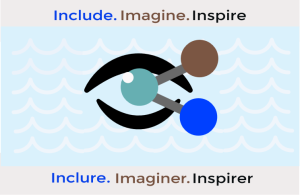Using Kirkpatrick’s Four Levels of Assessment to Measuring Success of a Virtual Reference Training Program
Kerry MacDonald – Learning & Organizational Development Librarian, Elizabeth Dafoe Library
University of Manitoba
In 2016 Librarians at the University of Manitoba Libraries changed Virtual Reference platforms. A training program was created in order to train 80 library staff on the new platform. A learning needs analysis also identified reference service interpersonal skills as a training need. Donald Kirkpatrick’s Four Levels, a model commonly used in the learning and development community, was used to evaluate the success of the training program. The Four Levels are defined and explained using the Virtual Reference staff training program as an example. Kirkpatrick’s Four Levels of Assessment allows management and library staff to assess staff or client training programs to demonstrate alignment with the strategic priorities of the library and its stakeholders.
No Post on Sundays: PEI Postcard’s #TranscribeTuesday Experiment
Mark Cousins & Meghan Landry, Robertson Library, UPEI
In early 2016 the Robertson Library received a donation of Prince Edward Island vintage postcards from the PEI Museum and Heritage Foundation. The aim of the project was to digitize and host the postcards on one of the Library’s virtual research environments. Public History students completed the digitization process and a Library student worked on ingesting content to UPEI’s CAIRN (CAUL/CBUA Atlantic Islandora Repository Network) VRE over the summer of 2016. Once completed, we began to inspect the metadata to ensure quality and to transcribe inscriptions on the postcards. During the course of transcription many postcards proved more difficult to decipher than others. The option of online crowdsourcing was brought forth to harvest the knowledge of PEI history and genealogy enthusiasts. We first began an experimental activity of “#transcribetuesday” in which we tweeted from the Library’s Twitter account. After a few weeks of modest response on Twitter, we transitioned to using Reddit: a platform that allows us to choose the forum or audience of viewers. Under the subreddit r/PEI, we were able to interact directly with Redditors interested in PEI news, history, and culture. After Reddit, we decided to reach out to a Facebook page called “Historic PEI” with almost 10,000 followers. They agreed to undertake a future collaborative project with the Library to create daily posts of postcards in an attempt to gain momentum and interest among its viewers. In future, these postcards will be migrated to the Library’s Island Archives to enhance and preserve PEI history. This project is currently active and therefore it could be either a poster as we have noted or a lightning talk depending on the feedback and participation on Facebook.
Researcher Response to the Tri-Agency Policy on Open Access Publications
Heidi Hlubina, Brian Lesser, Tyler Lightfoot, Lisa Nardecchia, Margaret Vail, Dalhousie University
In 2015, the Tri-Council Agencies (the Canadian Institutes of Health Research [CIHR], the Natural Sciences and Engineering Research Council of Canada [NSERC], and the Social Sciences and Humanities Research Council of Canada [SSHRC]) launched the Tri-Agency Open Access Policy on Publications, which requires that all peer-reviewed articles resulting from research funded by their agencies after May 1, 2015 be made available in an Open Access (OA) repository within 12 months of publication.
This study concentrated on Tri-Council Agencies grant recipients to identify the following: their awareness of the Tri-Agency Open Access Policy on Publications; their plans to comply (or not) with the OA requirement; where they deposited, or will deposit an OA copy of their research; and their reasons for selecting one option over another. The issue of mandating grant recipients to publish in OA remains a provocative one. The results of this study will provide beneficial information for those institutions looking to increase IR deposits by identifying the barriers that researchers face, and considerations that researchers must make to meet the OA mandates of their funding agencies.
